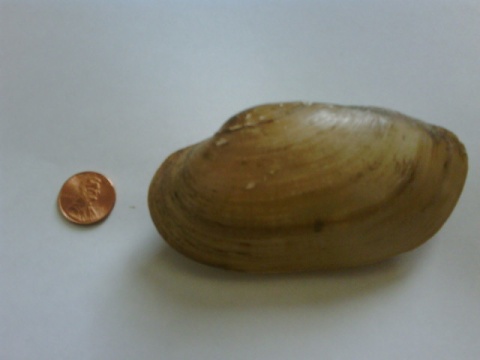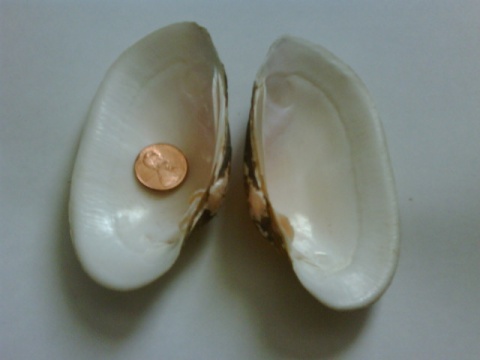For all those who don't know...
Freshwater mussels are the only species of bivalve mollusks known to exist in freshwater. No real things, such as freshwater clams exist. Helping a local native wildlife program, I was given the opportunity to find, collect, and breed these mussels to increase their population.:nilly: Here in Texas, there are various kinds of mussels. Ones I collected included but were not limited to Leptodea fragilis, Potamilus ohiensis, Lampsilis teres, and Toxolasma parvus.
If websites say that freshwater clams are different than mussels, they're WRONG. :nono: Most mussels will kill you fish with their parasitic spawn if your fish isn't 20lbs+. Almost all mussels for sale are from the wild, so you also risk diseases to your fish.
Only a very few species do not produce parasitic spawn. It is not recommended to keep mussels in general, but if you have them, they should be in a container no less than 10 gallons, provided the mussels are small. Believe it or not, a full grown mussel can filter water up to 80gph.
Don't put a mussel in your tank just because you have green water. They do filter algae, but prefer clean water. Their ideal water conditions are a PH of 7.7 and clear water with lots of protozoa in the water column.
Also, always have a strong water flow in your tank if you want to raise these inverts. Some mussels have different substrate needs than others. The small mussels that look like clams usually prefer gravel over sand. Thin mussels usually prefer sand. :jaw-dropping:
Sorry for the essay here, but that just about wraps it up. The next time you want to buy a mussel, please consider these factors so your mussel can can be as old as this guy. He's 20 and he's older than me. His health failed him just a few weeks ago.
The next time you want to buy a mussel, please consider these factors so your mussel can can be as old as this guy. He's 20 and he's older than me. His health failed him just a few weeks ago.


Freshwater mussels are the only species of bivalve mollusks known to exist in freshwater. No real things, such as freshwater clams exist. Helping a local native wildlife program, I was given the opportunity to find, collect, and breed these mussels to increase their population.:nilly: Here in Texas, there are various kinds of mussels. Ones I collected included but were not limited to Leptodea fragilis, Potamilus ohiensis, Lampsilis teres, and Toxolasma parvus.
If websites say that freshwater clams are different than mussels, they're WRONG. :nono: Most mussels will kill you fish with their parasitic spawn if your fish isn't 20lbs+. Almost all mussels for sale are from the wild, so you also risk diseases to your fish.
Only a very few species do not produce parasitic spawn. It is not recommended to keep mussels in general, but if you have them, they should be in a container no less than 10 gallons, provided the mussels are small. Believe it or not, a full grown mussel can filter water up to 80gph.
Don't put a mussel in your tank just because you have green water. They do filter algae, but prefer clean water. Their ideal water conditions are a PH of 7.7 and clear water with lots of protozoa in the water column.
Also, always have a strong water flow in your tank if you want to raise these inverts. Some mussels have different substrate needs than others. The small mussels that look like clams usually prefer gravel over sand. Thin mussels usually prefer sand. :jaw-dropping:
Sorry for the essay here, but that just about wraps it up.




